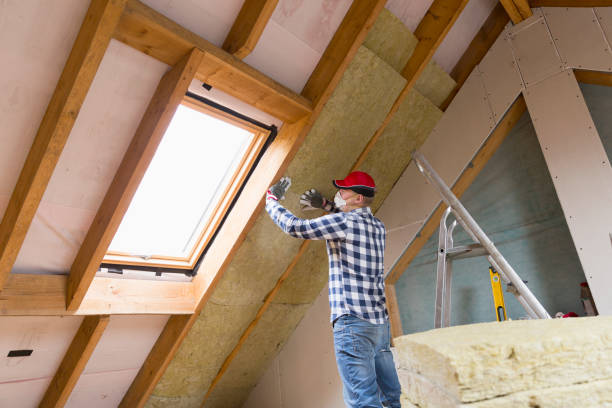Insulation is an essential component of any building, regardless of whether it is a residential or commercial property. It is crucial in maintaining a comfortable indoor temperature, reducing energy consumption and preventing the buildup of moisture and condensation. However, choosing the right insulation material can be a daunting task, especially with so many options available on the market.
In this comprehensive guide, we will take you through the different types of insulation materials, their properties, benefits, and drawbacks, and help you determine the best home insulation contractors near me.
Types of Insulation Materials
- Fiberglass Insulation
Fiberglass insulation is the most commonly used insulation material in the United States. It is made from glass fibers that are melted, spun into yarn, and woven into blankets or batts. Fiberglass insulation is relatively cheap, easy to install, and highly effective in preventing heat transfer.
- Cellulose Insulation
Cellulose insulation is made from recycled paper products, such as newspapers and cardboard. It is an environmentally friendly option, as it contains a high percentage of post-consumer recycled materials. Cellulose insulation is also fire-resistant and has excellent soundproofing properties.
- Rock Wool Insulation
Rock wool insulation, also known as mineral wool, is made from natural minerals, such as basalt and dolomite. It is a durable and fire-resistant insulation material, with excellent thermal performance and acoustic properties.
- Spray Foam Insulation
Spray foam insulation is a flexible, polyurethane-based insulation material that can be sprayed into walls, ceilings, and other hard-to-reach areas. It creates an airtight seal, which makes it an excellent option for preventing air infiltration and moisture buildup.
Benefits of Insulation
- Energy Efficiency
Insulation plays a crucial role in reducing energy consumption, as it helps regulate indoor temperature by preventing heat transfer. This, in turn, reduces the need for heating and cooling systems, resulting in lower energy bills and a more sustainable home.
- Comfort
Insulation helps maintain a comfortable indoor temperature by preventing heat loss in the winter and heat gain in the summer. It ensures that your home remains warm in the winter and cool in the summer, even with changes in the outdoor temperature.
- Moisture and Condensation Control
Insulation helps prevent the buildup of moisture and condensation, which can lead to mold and mildew growth, as well as structural damage. A well-insulated home minimizes the risk of these issues, ensuring a healthy and comfortable indoor environment.
- Acoustic Properties
Insulation also has excellent soundproofing properties, reducing noise transmission between rooms and between the interior and exterior of a building. This can significantly improve the quality of life in your home, especially if you live in a noisy neighborhood.
Factors to Consider When Choosing Insulation
- R-Value

